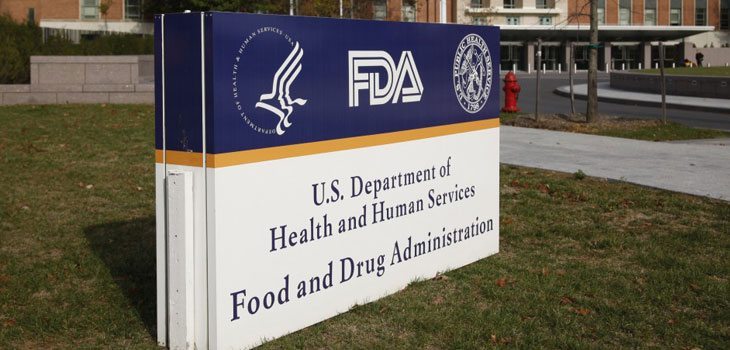
Sometimes the impact that a fresh input might have biotechnology space can be a tough thing to figure out and, on Monday, we got a perfect example of this.
At the opening bell, markets learned from development stage biotechnology play Rigel Pharmaceuticals, Inc. (NASDAQ:RIGL) that the US Food and Drug Administration had indicated that it wouldn’t be holding an Oncology Drugs Advisory Committee (ODAC) meeting to discuss the company’s New Drug Application (NDA) for a development asset called fostamatinib.
The latter is one of Rigel’s lead assets and the company has just this year wound up the clinical stage of a development program aimed at getting it approved in a target indication of the treatment of patients with chronic or persistent immune thrombocytopenia (ITP). ITP is one of those conditions for which a couple of treatment options exist already as established standard of care therapies in the space but, for many, these SOCs are either outright ineffective, lose effectiveness over time or cause side effects that limit a patient’s ability to stick to the recommended dose.
So, with fostamatinib, Rigel is trying to get a fresh treatment option on shelves for these patients – one that overcomes one or more of the above-listed issues. It is an inhibitor of the enzyme spleen tyrosine kinase (Syk) and, as a result, it is generally referred to as a syk inhibitor. Scientists think that Syk is responsible for the clearing out of platelets in the body, so through its inhibition, the idea is that fostamatinib can help patients with ITP to halt the decline in platelet levels or, even better, to reverse the degradation and help a patient replenish his or her platelet levels.
Anyway, getting to the latest news and as mentioned above, the FDA no longer wants to hold an AdCom meeting ahead of the drug’s PDUFA. What does this mean? Well, this is what we were alluding to in the introduction to this piece.
On a number of occasions, the FDA changing its mind as to whether it wants an AdCom vote to inform its decision has translated to some downside action in the company that’s developing the drug in question’s share price. Basically, markets see this decision as indicative of the fact that the agency doesn’t want to waste a panel’s time when it has already made up its mind that it’s not going to approve something.
With that said, however, we’ve also seen numerous examples of companies that have picked up the same news and have subsequently gone on to appreciate in value, with markets interpreting the non-necessity of an AdCom vote as indicative of the agency already having made up its mind that it’s going to approve a drug.
This latter situation is what’s happened here.
On the news, Rigel ran up to close out at a 33% premium to the price at which they traded at the market open on Monday.
The question now, of course, is whether this interpretation is correct. And the bottom line is that there’s just no way of knowing which of the two scenarios is the most likely in this sort of situation. We can look to data for clues, and the program that underpins the NDA that’s with the agency right now is pretty strong, so to some degree that’s a tick in the right box. We can also look at the indication and say that there’s quite a large unmet need in ITP right now. Couple that with the idea that the drug seems safe (based on the above-mentioned data) and there’s an argument that, whatever the efficacy, the FDA will approve it on the off chance that it’s going to help some of these patients purely because there’s no real reason not to.
Both of these suggestions are valid but – at core – that’s all they are, suggestions.
Regardless, markets are loading up on the company ahead of the vote so we’ll probably see some further strength between now and the close of the year and during the first quarter of 2018. The PDUFA date is set for April 17, 2018, so that’s the date to watch for some clarity on the situation.
Let’s see what happens.




